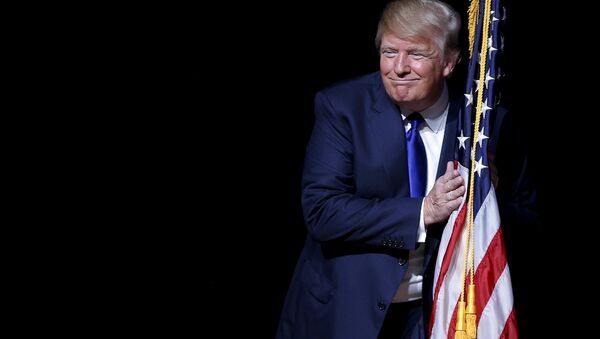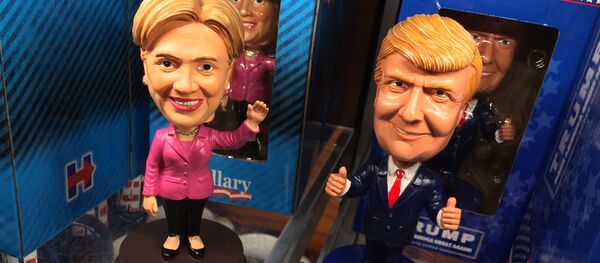MOSCOW (Sputnik) — Even on the day of the elections, responding to a question whether or not he would accept the elections results, Trump said that he would "see what happens," the CNN television broadcaster reported.
This and previous similar statements by the candidate made US media question whether Trump might legally challenge the results of the elections. The ramifications of such a situation, if it happens, are hardly predictable.
Right to Challenge
States normally have to finalize the results of the elections and deal with any challenges within five weeks after the Election Day. After that, the Congress can question the voting results in January when it gathers to count the electoral votes. At least two Congress members, one Senator and one Representative, have to sign the written claim that the election results in a specific state are untrustworthy to trigger the separate deliberations in the two chambers and subsequent vote. To lead to any further action, the claim needs to be backed by the majority in the House and in the Senate.
Past Examples
Most recently, in January 2005, the Democrats challenged the victory of George Bush in Ohio, but the Congress dismissed the allegations.
In a few other notable examples of strong allegations of election-rigging, the results were not contested in Congress.
In 1888, the Republican US Senator Benjamin Harrison’s plan to buy votes was uncovered by the Democrats who made it public. Harrison still won the election and the Democratic Party candidate Grover Cleveland did not challenge results, instead opting to run in the next elections, which he won.
In 2000, due to the malfunction of the punch card ballot system, tens of thousands of votes in Florida were uncounted. The Democratic candidate Al Gore filed a lawsuit to have the ballots recounted to the extent that it would be possible, but after winning in the Florida State Supreme Court, his plea was stifled by the US Supreme Court.
Expert Doubts
The United States election system presents a specific challenge: despite winning the popular vote, the candidate may lose the electoral college, which puts an additional pressure on the nominees to win the so-called swing states.
If the two candidates were virtually tied in one of such states or nationwide, there might be plausible ground for further legal action by the person dissatisfied with the results.
"He [Trump] could try to litigate. But if he loses by a wide margin he’s not likely to get far in court," Rick Hasen, a University of California-Irvine professor told The Guardian.
Considering how high the tensions have been running in this election so far, if Trump does lose and challenge, whether he then wins or loses the challenge, the United States will have to deal with millions of disgruntled voters on one or both of the sides.






